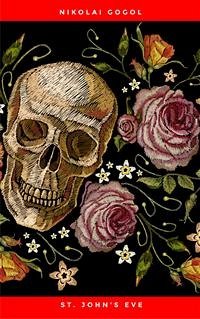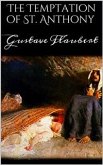This story is retold by Rudy Panko from Foma Grigorievich, the sexton of the Dikanka church. Rudy was in the middle of reading the story to the reader, when Foma butts in and demands to tell it his way. His grandfather used to live in an old village not far from Dikanka that no longer exists. There lived a Cossack named Korzh, his daughter Pidorka and his worker Petro. Petro and Pidorka fall in love, but Korzh catches them one day kissing and is about to whip Petro for this, but stops when his son Ivas pleads for his father to not beat the worker. Korzh instead takes him outside and tells him to never come to his home again, putting the lovers into despair. Petro wants to do whatever he can to get her, and meets up with Basavriuk, a local stranger who frequents the village and many believe to be the devil himself. Basavriuk tells Petro to meet him in Bear’s Ravine and he’ll show him where treasure is in order to get back Pidorka.









